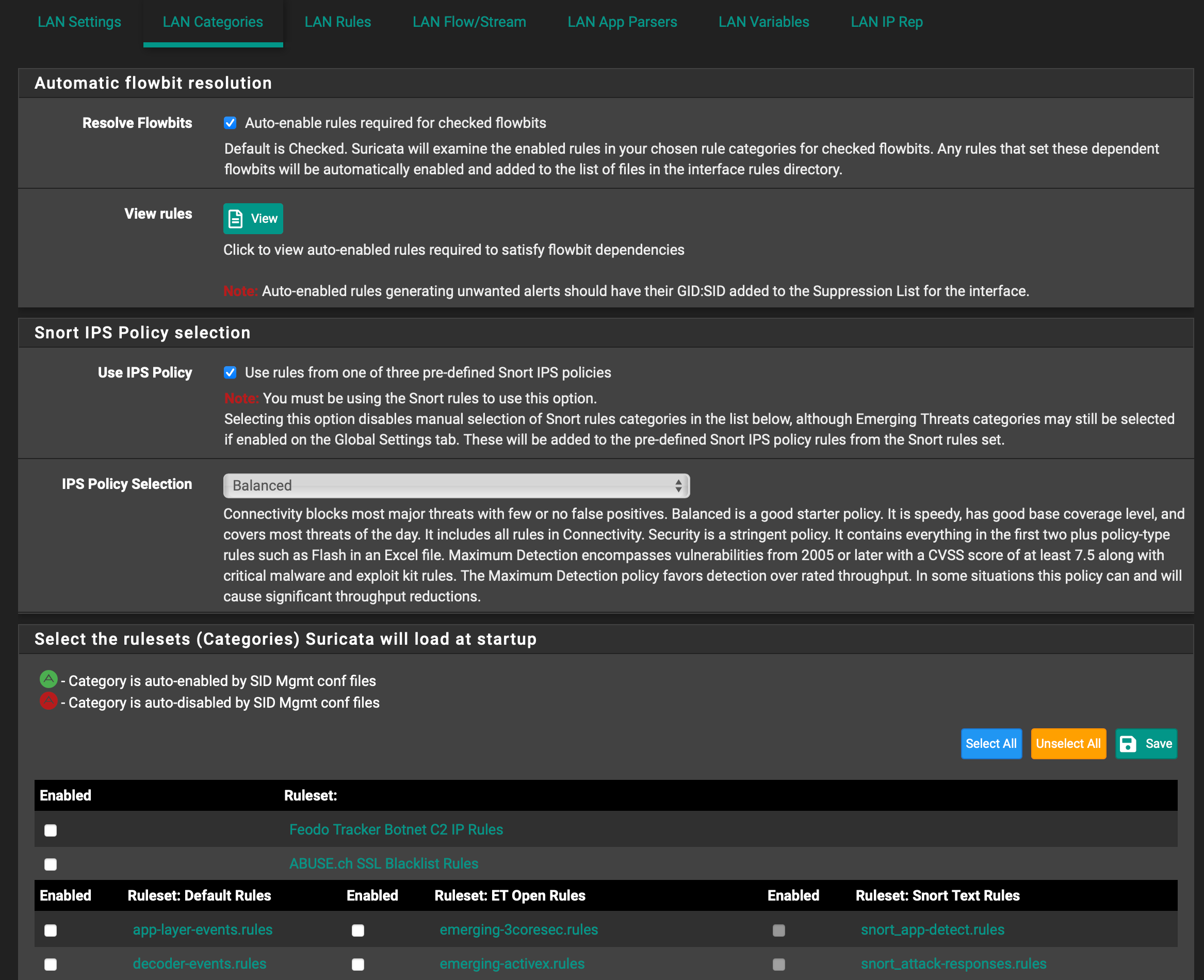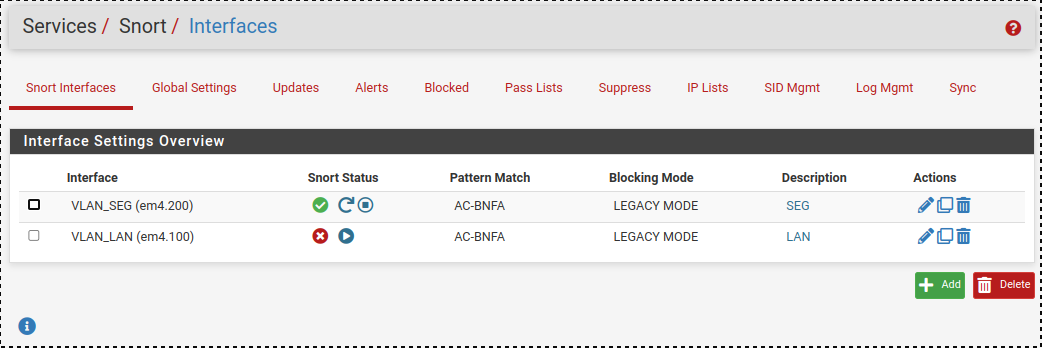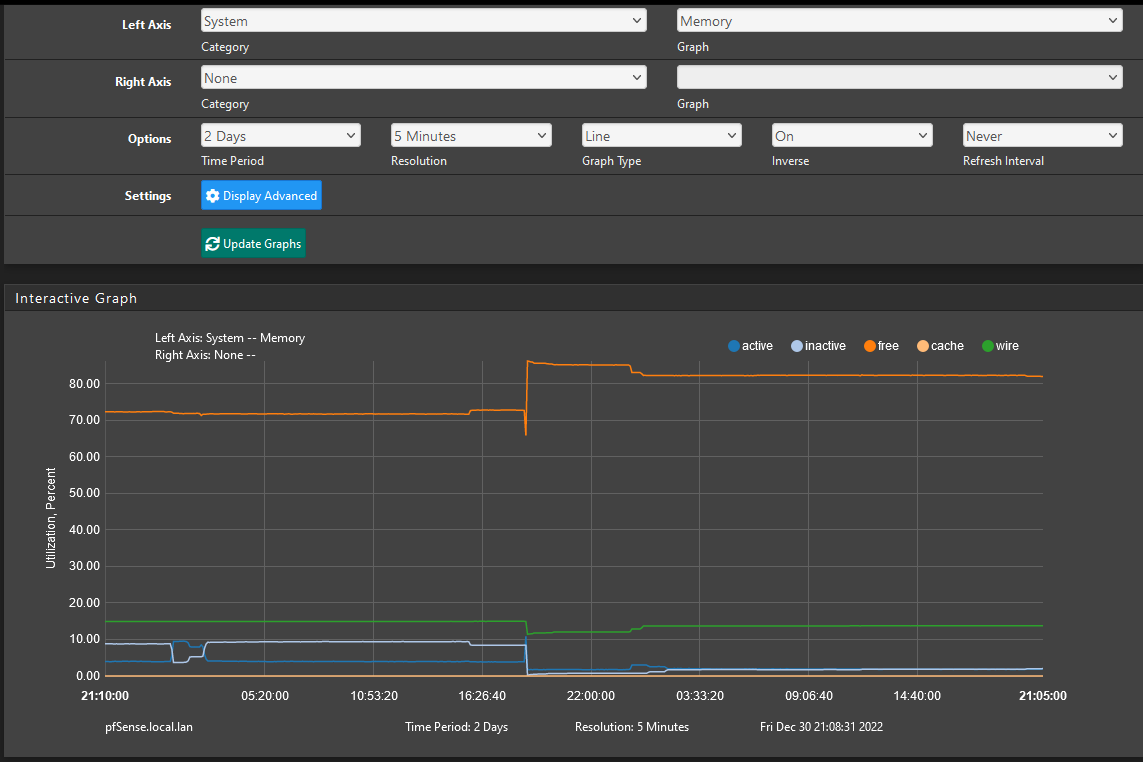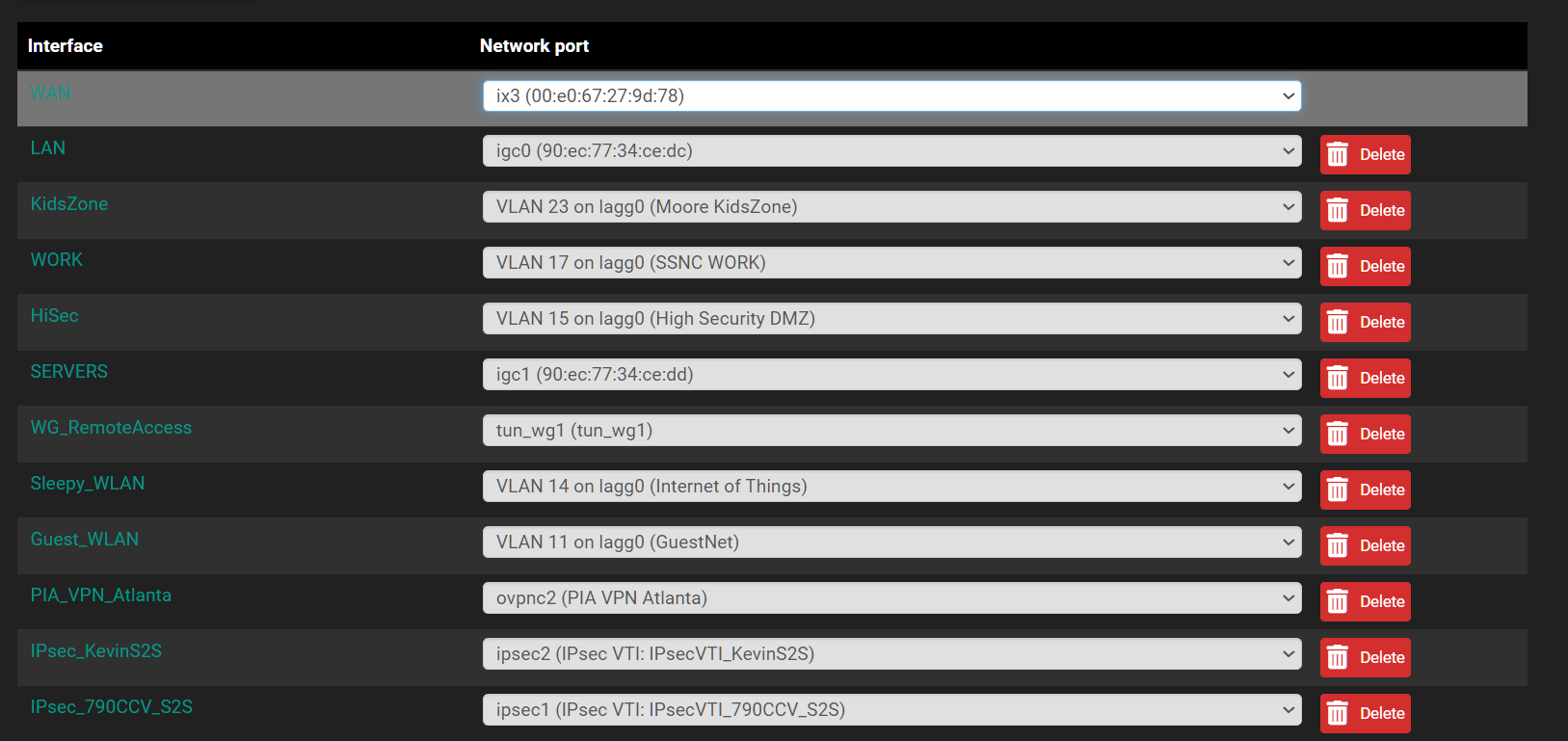@michmoor said in Trying to get snort to block local client if they have a trojan:
will Suricata/Snort drop the flow even tho these are directly connected networks on the firewall and not external (WAN side)
No, in Legacy Mode Blocking it will not unless the default Pass List is replaced by a custom one in the manner @jimmychoosshoes describes in his post just above this one.
The default behavior for the IDS/IPS packages is to NOT block host IPs from locally-attached networks. They will block external IPs, however, and that accomplishes what is normally required for protection.
But when using Inline IPS Mode, there is no Pass List logic involved. Any malicious traffic would be dropped (not forwarded), but only if the detection rule is properly triggered. But one issue with detection is the composition of the HOME_NET variable. That variable will, by default, contain all the locally-attached subnets. And EXTERNAL_NET will, by default, be defined as !HOME_NET (which means all IPs not defined in HOME_NET are in EXTERNAL_NET). Many IDS/IPS rules are written with $HOME_NET and $EXTERNAL_NET as part of the triggering condition along with traffic direction. For example, the vast majority of rules start like this:
alert tcp $EXTERNAL_NET any -> $HOME_NET any .....
The very first condition of this rule is that the traffic flow must be from an IP defined in the $EXTERNAL_NET variable towards an IP defined in the $HOME_NET variable. So, the source IP must be in EXTERNAL_NET and the destination IP must be in HOME_NET. Because locally-attached subnets are all included in $HOME_NET by default, this condition would not be satisfied in your example of a device in SERVER communicating with a device in LAN, and the rule would never trigger.
While the default behavior of Pass Lists and the HOME_NET variable could certainly be changed by altering the code of the packages, it would generate no end of howling from the majority of users because as I described earlier, Legacy Mode blocking blocks the IP completely. All traffic is blocked. That will result in a lot of problems for your users. And there are just too many false positives these days for that change in default behavior to be workable.
The whole premise of the IDS/IPS packages today in pfSense is to protect from external threats. External in this context means beyond the network perimeter as in "the Internet". The packages are not set up by default to block internal threats from one local network over to another. But you can customize the configuration to accomplish that if you desire. Simply create as many custom Pass Lists as required and then assign them to interfaces. Remember that Pass Lists are simply collections of IP addresses, so a custom Pass List can be selected and applied as the HOME_NET variable if needed. That's how you would customize the content of the $HOME_NET variable used in rules. I would probably never monkey with EXTERNAL_NET, though. Leave it set to "default" and that will result in it always being set to !HOME_NET (which is almost always what you want).






